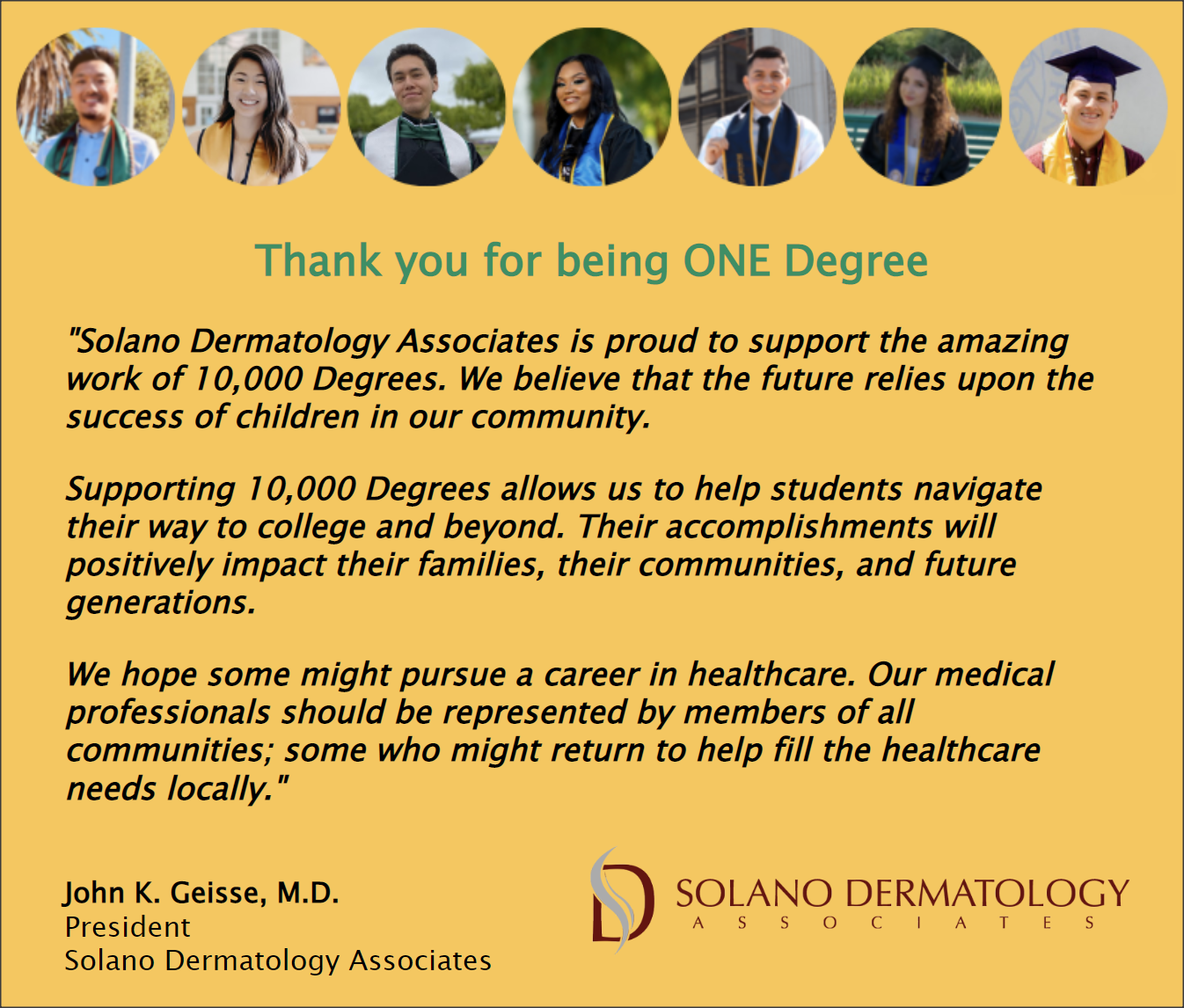Influencers Are Saying Sunscreen Causes Cancer. They Are Wrong.
Just because they have influence, doesn’t mean you should believe them. Be careful of the information you get from social media.
Just because they have influence, doesn’t mean you should believe them. Be careful of the information you get from social media.
We came across this great article and wanted to pass it along for our patients.
Our very own Dr. John Geisse was interviewed for this article published in the Daily Republic about Skin Cancer for Skin Cancer Awareness Month.
On January 11, 2023 Jill Biden (the First Lady) had Mohs Micrographic Surgery for Basal Cell Carcinoma.
This procedure is safe and a fairly common treatment option for certain Basal Cell Carcinomas.

More information about 10,000 degrees can be found at 10000degrees.org
Did you know that drug shortages are a common occurrence in the United States. At any time of the year the FDA reports multiple medications that are out of stock. This becomes troubling for people with specific diagnoses who require treatment that doesn’t have alternatives.
However, we are now in a crisis where the supply of an entire class of medications has been disrupted and millions of patients have/will be affected. Local Anesthetics.
Dermatology practices like ours have been struggling to get local anesthetics like lidocaine. These anesthetics are used for hundreds of procedures that are done in our offices each week. We use lidocaine to biopsy lesions suspicious of cancer and to perform surgical procedures to remove malignant and nonmalignant, but sometimes critical, lesions.
This is frustrating for both our patients and our providers. We are dependent on the suppliers of these medications to have them readily available for our use. It’s surprising that our government hasn’t done much to prevent these drug shortages since the first FDA drug shortage report to congress in 2013.
Please consider sending your representative a letter regarding your concern.
[Date]
Dear [Congressional Member]:
I am writing to you as your constituent to discuss an issue of great concern—the national drug shortage. It is troubling that commonplace medications that are used in physicians’ offices every day are not available in the United States, and that their unavailability places America’s patients, including your constituents, at risk.
The issue of drug shortages in the United States is an escalating problem that began nearly a decade ago when limited production capacity and lack of competition in the pharmaceutical industry led to a shortage of generic injectable medications, including lidocaine and lidocaine with epinephrine. Since then, medical organizations, like the American Academy of Dermatology Association, have actively lobbied Congress and federal agencies, including the Federal Drug Administration, to address the concern. I fear that those efforts have not fixed the problem. Therefore, I am writing to you as a patient and your constituent to let you know how this shortage affects us.
Lidocaine is a local anesthetic frequently used for common dermatologic procedures, and lidocaine with epinephrine is essential to control bleeding during these surgical procedures. However, lidocaine with epinephrine is only available in limited quantities and in some cases has been on back order for months. The impact on this shortage is most acutely felt among solo and small practitioners where the predominant outpatient care is provided.
This is what the national shortage of lidocaine means to me and millions of other patients across the United States:
Please put an end to our nation’s drug shortage by working with the pharmaceutical industry, federal agencies and our national medical organizations to rapidly identify feasible solutions to this national crisis.
Yours most sincerely:
[Patient Name and Contact Information]
Solano Dermatology encourages everyone who is eligible to get vaccinated for COVID-19.
Read the full story about how important this vaccine is at NBC news article June 2021.
We came across this great article about Keloids and wanted to share it with you.